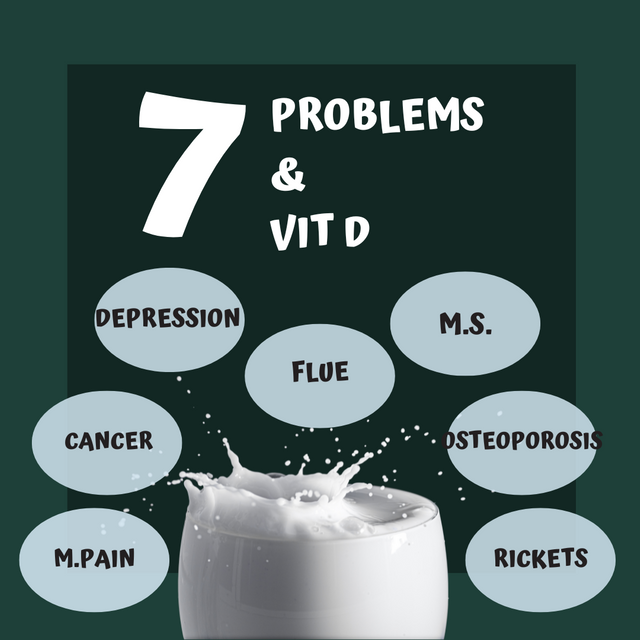7 healthy problems you can avoid by just vitamin D
against depression
Experts do not know whether its absence leads to depression or the other way around. But studies show a connection between the two. Research is ongoing to see if increasing your vitamin D intake can help reduce symptoms and improve your condition.
against flu
Scientists are still discovering exactly how vitamin D can treat or prevent you from getting this virus. A study showed that taking vitamin D during the winter helped reduce the number of Japanese school children who got the flu. It is clearly an important part of the immune system. Your body can't fight off viruses effectively if they aren't getting enough.
against Multiple Sclerosis
Research shows that vitamin D can reduce the risk of developing MS. It is a disease where the immune system attacks the central nervous system. If you already have it, some research shows that vitamin D can reduce your symptoms or even slow the disease down.
against cancer
Vitamin D can reduce the risk of certain cancers, such as colon, breast, and prostate. Good level even when combined with calcium. In a clinical trial, the risk in African Americans was reduced by 23% when they took vitamin D supplements.
against Osteoporosis
It affects one third of women between the ages of 60 and 70 and two thirds of women aged 80 and over. There is no cause, but not enough vitamin D makes it difficult for you to use the minerals it needs to make bones strong. In osteoporosis, this means widening of the holes in your bones. They become more "porous", which makes them break.
against Muscle Pain
People with pain and weakness in their muscles and bones often do not get enough vitamin D. Especially in the elderly, weak muscles can increase the risk of falls and broken bones. It can also be a sign of osteoporosis. Talk to your doctor if you experience any pain. This can be a warning sign that may go away with vitamin D supplementation or dietary or lifestyle changes.
against Rickets
In the 1800s, urban pollution could be so severe as to block much sunlight. This led to low levels of vitamin D which led to an epidemic of childhood diseases that stunted growth and damaged young bones. Sunbathing and vitamin-rich foods help stop it. But you can still get rickets. This is especially possible in infants of mothers with low vitamin D, which is more common in African American women.
